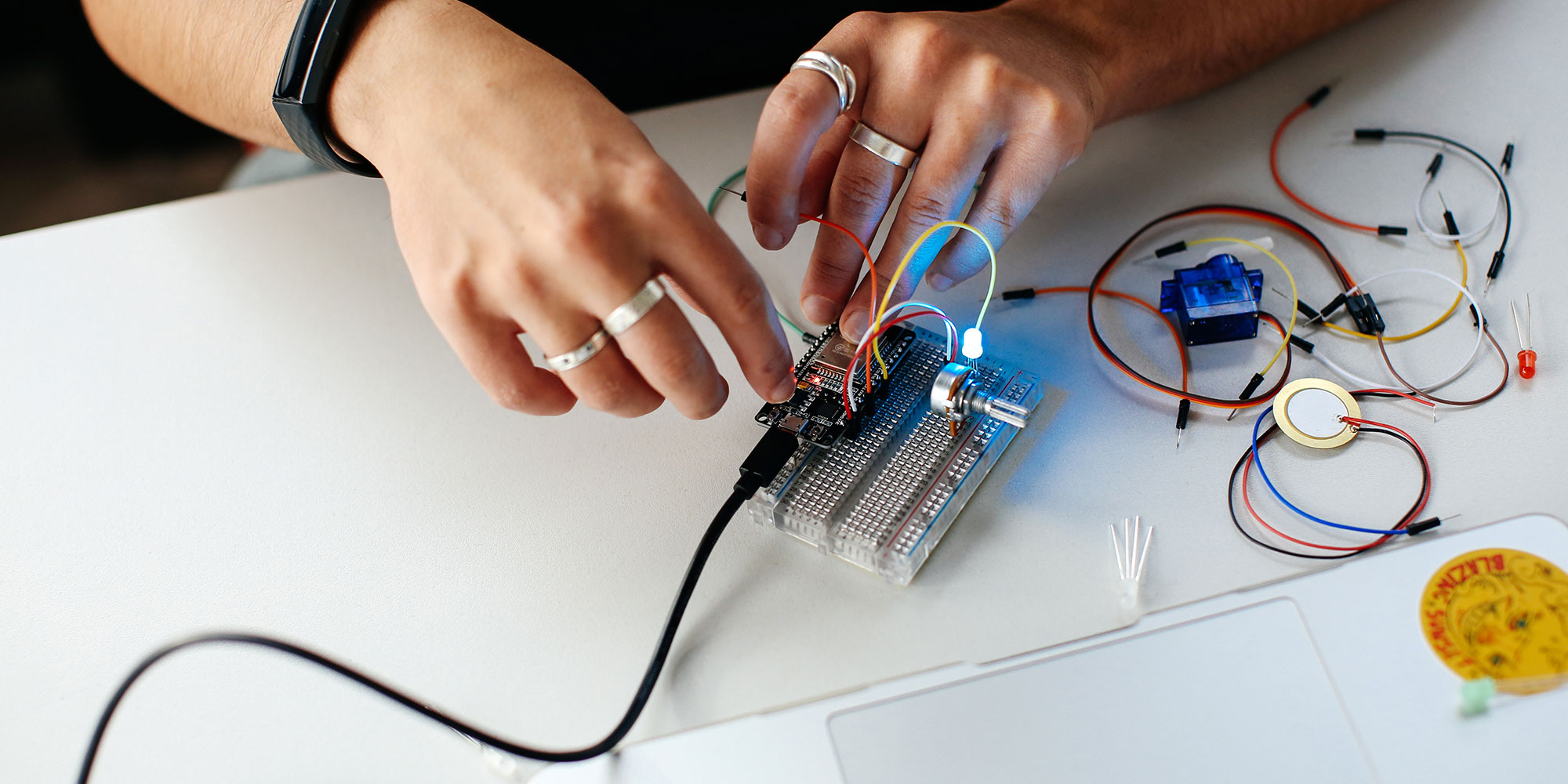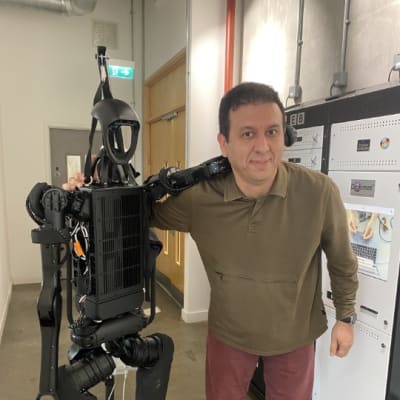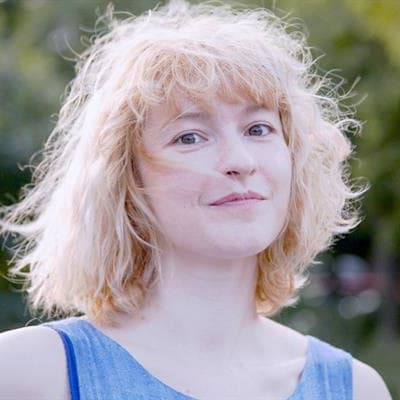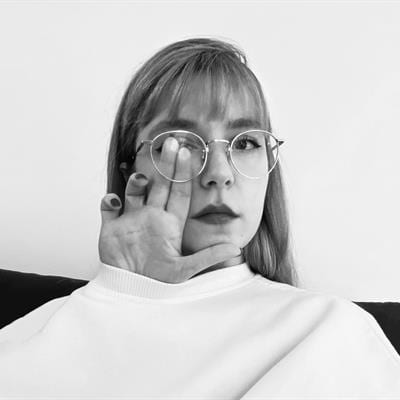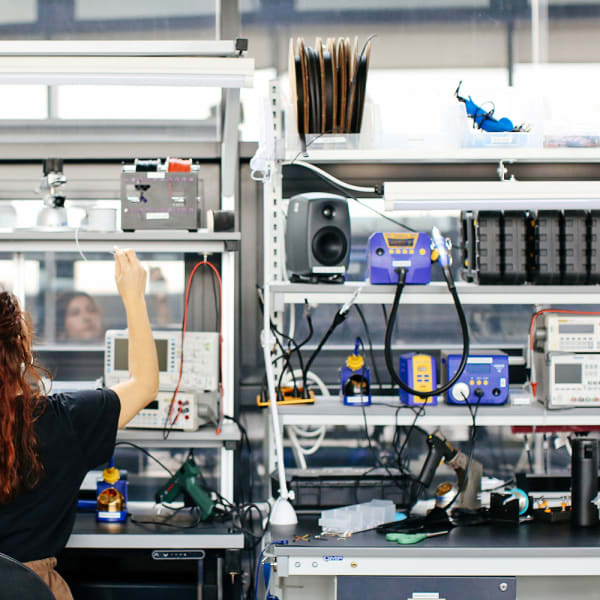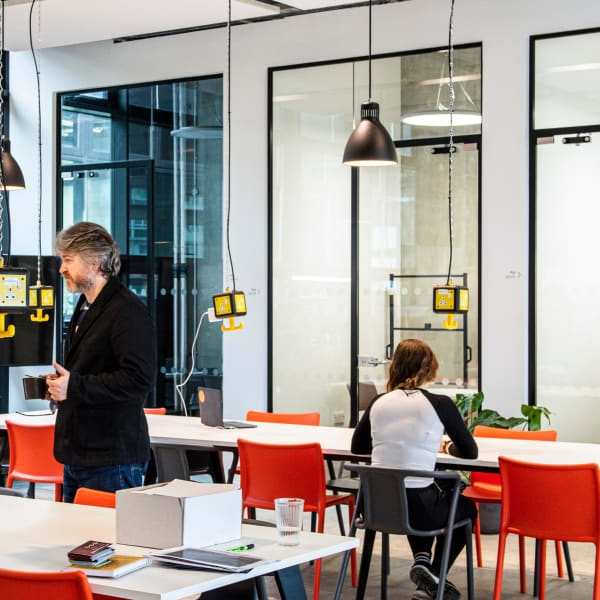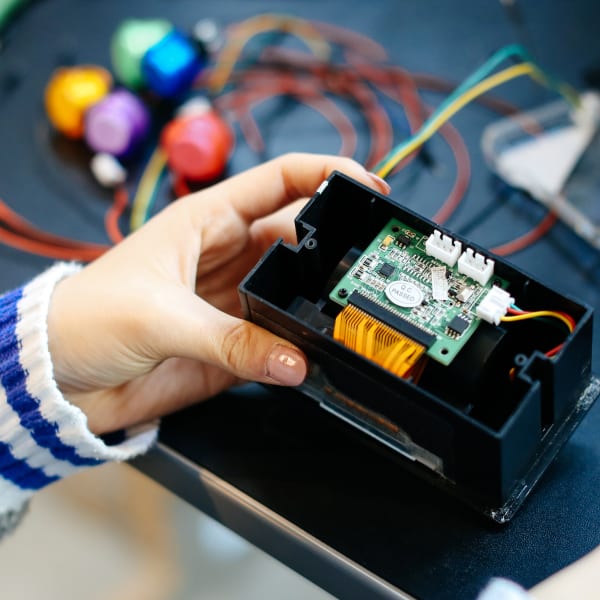Course units
Term 1
Coding for Robotics
This unit explores the fundamental principles of programming and human-machine communication in creative robotics. Through theoretical study and practical tutorials, students examine how machines interact with the world, learning algorithmic thinking and increasingly complex programming concepts. Following the practice-led approach, students develop skills and gain practical experience in cybernetics, object-oriented programming and real-world data representation in computer systems.
This unit has the explicit aim of equipping you with an advanced programming foundation to tackle creative robotics programming through the rest of the course.
Critical Robotics: Studies and Research Methods
This unit introduces the key aspects of the research process and interdisciplinary methodologies for creative robotics research. You will approach qualitative, quantitative, visual and applied methods from the fields of computing and design methodologies, such as critical and speculative design. You will explore the history of robotics and human-robot interaction. Taking a design thinking approach, you will also engage with critical thinking and coherent robotics proposals. During the course you will also encounter practical examples of creative robotics from industry and academia, including applications in performing arts, theatre, dance, and other innovative contexts.
Embedded Systems and Soft Robotics
This unit introduces the foundational principles and practical skills required to design and build interactive physical systems. Students will explore key topics such as embedded systems, machine elements, sensors, actuators, and compliant robotics, learning how these components integrate to create adaptive and responsive systems. Through hands-on projects and practical exercises, students will develop both technical proficiency and creative problem-solving abilities. Emphasis is placed on designing systems that meaningfully engage with their environments while considering their broader social and ethical implications.
Term 2
Introduction to Machine Learning
This unit examines application of generative techniques to 3D structures, images, and music, further introducing students to machine learning (ML) and applying it to human recognition tasks. Students explore how machine systems can create synthetic representations of the real-world data introduced in the previous module. Unit then introduces different ML frameworks and their applications in systems for human perception, such as motion capture, facial recognition, and speech processing. Through these frameworks, students develop the understanding of explainability in the human-machine interaction systems.
Critical Robotics: Studies and Research Methods - Continued
See above
Creative Making and Applied Robotics
This unit provides an in-depth exploration of key robotics concepts, including kinematics, dynamics, control, motion planning, and navigation, with a focus on applications in social robotics and creative design. You will gain hands-on experience with simulation tools such as Gazebo, while learning to design, program, and control robots capable of autonomous movement and interaction in dynamic environments. The unit further emphasizes practical skills in motion planning algorithms, sensory-motor control systems, and the integration of sensor data, preparing you to address real-world challenges in human-robot interaction and creative robotics.
Term 3
Applied Machine Learning
This advanced unit introduces the core principles and methods driving modern machine learning (ML) and artificial intelligence (AI) applications. Students explore fundamental concepts including supervised and unsupervised learning, classification, clustering, and regression through practical examples in robotics. The unit emphasizes understanding probability-based approaches and optimization techniques, providing students with both theoretical knowledge and hands-on experience in implementing AI solutions for real-world applications.
Creative Making and Applied Robotics - Continued
Term 4
Creative Robotics Final Project
This unit gives you the opportunity to develop an advanced creative robotics project and write an associated thesis. This project is expected to be an advanced application of robotics approaches to creative practice and an exposition in writing of both the technical development of the project and its creative aims. Prior to the summer break, you will undertake a project proposal phase which includes agreeing the creative ambitions and the technical scope of the project. Significant waypoints and demo stages will support you throughout the process. This can be an individual or group project.
Research option
You may have the opportunity to complete your advanced project as a research assistant for an Institute professor/researcher on a specific project. The submission requirement will be the same and the proposal stage will need to outline the proposed activity at a similar level of detail. Due to the availability of suitable research projects this option will be subject to a competitive process if demand outstrips supply.
